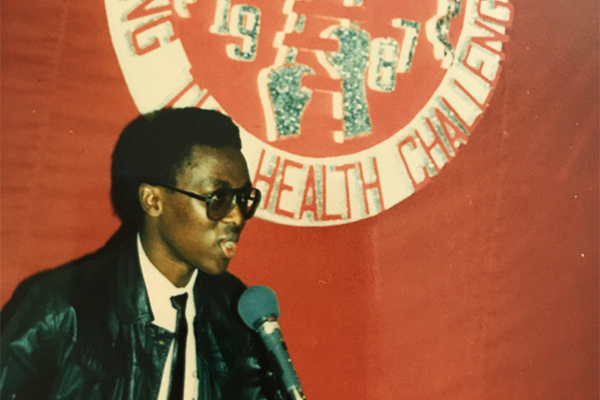

Dare to Dream
Success comes to those who dare to dream and are brave enough to carry the world on their shoulders.
Medical school achievements and early photos
Professor Bongani Mawethu Mayosi (BMedSci, MB ChB, FCP(SA), DPhil, OMS) was the embodiment of a visionary medical researcher, a nurturing teacher, an inspiring mentor and a caring doctor. He had an immense impact on the lives of academics, patients and ordinary citizens. His rare combination of academic brilliance, vision, and tenacity combined with charm, an infectious smile, and deep humility, made everyone who came into contact with him feel special and empowered.
Bongani Mayosi’s humility and leadership was nurtured in rural Eastern Cape Province where, at only 15 years old, he received the province’s highest marks in matric. At the age of 16 he enrolled at the University of KwaZulu-Natal in Durban, where he was the first person to graduate with two concurrent degrees, MB ChB and BMedSci, both with distinction.
After he specialised in Cardiology at UCT, he studied at the University of Oxford on a Nuffield Fellowship for a Doctor of Philosophy in Medicine. He returned to South Africa to pursue his career as a clinician scientist and cardiologist at Groote Schuur Hospital and UCT.
He was later appointed as Groote Schuur Hospital and UCT’s first Black African Head of Medicine, developing it into one of the continent’s most successful and productive departments of Medicine. His academic leadership was recognised through his appointment as the Dean of the Faculty of Health Sciences, providing the opportunity to live out his dream of nurturing the next generation of health researchers and practitioners.
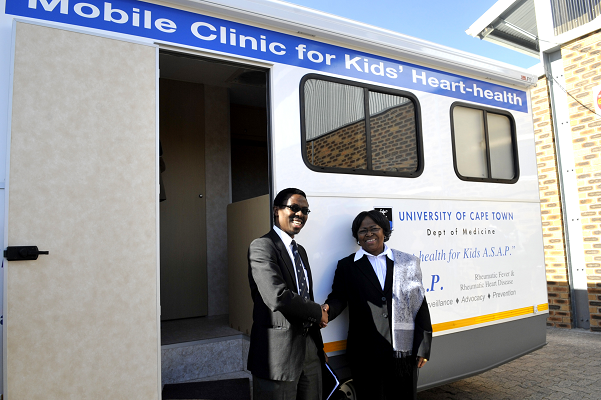

Poverty breaks hearts
Spurred on by his desire to improve the lives of the poor, Professor Bongani Mayosi studied rheumatic heart disease, tuberculous pericarditis, heart failure and cardiomyopathy.
Research groups focus: Poverty Related Heart Diseases
To address this need to eradicate neglected diseases of poverty, Bogani Mayosi pioneered and succeeded in conducting large cardiovascular clinical trials and studies in Africa when no one else would dare. Important examples include the landmark IMPI (Investigation of the Management of Pericarditis) trial to determine the effects of steroids and immunotherapy in patients with TB pericarditis and the Global Rheumatic Heart Disease Registry (REMEDY Study) - both of which were published and presented on the world’s biggest cardiology platforms. Due in large part to his contributions, the concept of primary prevention of rheumatic fever (i.e. penicillin) as a means to eradicate rheumatic heart disease was subsequently placed on the global health agenda.
He raised over R250 million in research funding and student support and published over 300 peer-reviewed articles in leading journals, as well as serving on national and international editorial boards.
Bongani Mayosi led the teams who discovered the genes FAM111B (a cause of multisystem fibrosis) and CDH2 (a cause of sudden cardiac death) particularly amongst Africans with heart muscle disease.
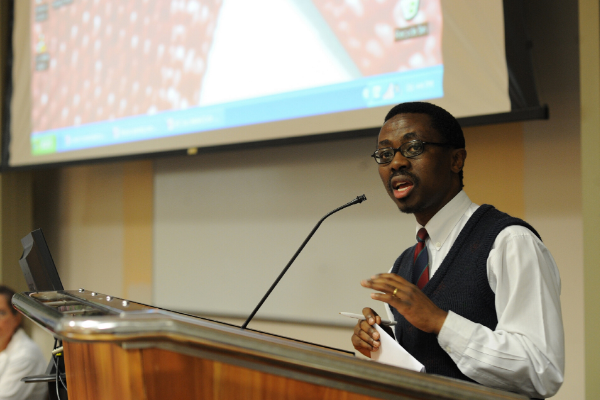

Systems to execute an agenda for Africa by Africans
Professor Bongani Mayosi was a true global citizen, who always carried the torch for South Africa and Africa.
Societies and Organizations
Thanks to Bongani Mayosi’s advocacy and towering reputation, he was able to unite researchers, practitioners, and policymakers across the continent and persuade them to turn their focus to neglected diseases that were prevalent in Africa. Notable examples of his ability to inspire Africa to rethink and reset its agenda include his carefully crafted 2005 Drakensberg Declaration and 2014 Mosi-oa-Tunya (“the smoke that thunders”) call to action.
The Drakensberg Declaration urged "all relevant entities within the international cardiac surgery, industry, and government sectors to commit to develop and implement an effective strategy to address the scourge of rheumatic heart disease in the developing world through increased access to life-saving cardiac surgery". The Mosi-oa-Tunya call gave rise to an African Union, World Heart Federation and WHO-AFRO plan to persuade the 71st World Health Assembly in 2018 to adopt the eradication of rheumatic heart disease on the continent and around the world as a global health priority.
Bongani Mayosi was President of the College of Physicians of South Africa, Chairman of the South African National Health Research Committee, Chairman of the Advisory Committee of Health Research and Development of the World Health Organization (WHO) —Africa Region, and President of the Pan-African Society of Cardiology (PASCAR), which he revived from relative obscurity into an important vehicle for cardiovascular health education, policy and practice across the continent.
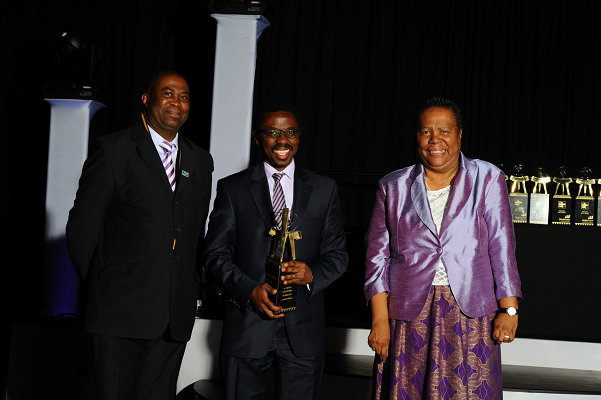

Your work must speak for itself
Professor Bongani Mayosi’s immense contributions to science and society were acknowledged through numerous awards and prizes.
Transformation
Bongani Mayosi was awarded the National Science and Technology Foundation BHP Billiton Award for his outstanding contributions to Science, Engineering, Technology and Innovation (SETI) in South Africa. The call for nominations for this award is open to the public and his selection is evidence of the wide-ranging public respect and recognition of his research, innovation and leadership.
He also received the Hamilton Naki NRF Award for Transforming the Science Cohort of South Africa, in recognition of his research excellence and his contribution to the demographic transformation of South Africa’s science cohort.
Bongani Mayosi held a National Research Foundation ‘A’ Rating, reflecting the quality and impact of his research and his unequivocal recognition by the research community as a leading international scholar. He also received the South African Medical Research Council Platinum Award for Lifetime Achievements.
In November 2009, the President of South Africa bestowed upon him South Africa’s highest honour, the Order of Mapungubwe in Silver, for his excellent contributions to medical science.
Bongani Mayosi was one of the few Africans to be inducted into the National Academy of Medicine in the USA – one of the highest honours in the fields of health and medicine, recognising individuals who have demonstrated outstanding professional achievement and commitment to service.
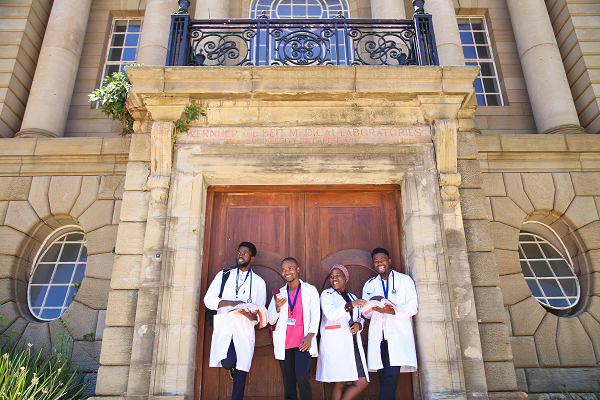

Grow your own timber
Professor Bongani Mayosi believed that African scientists had to be trained to the highest global standards in the world, and so become world leaders on Africa’s problems.
Contribution to PhD funding for clinicians (all) medical and associated disciplines
One of Bongani Mayosi’s most remarkable legacies was his dedication to mentoring junior clinician scientists and building research capacity in Africa. He motivated for securing funding, ensuring training by the best mentors in the world, selecting the right topics, and starting early. To this end, he played a leading role in creating the South African National Health Scholars Programme, a visionary 10-year initiative offering 1000 PhD scholarships. This level of commitment, his endearing qualities, and his extraordinary research capacity made him a magnet for young researchers from all over the African continent. He supervised 19 Masters, 11 PhDs and 1 Doctor of Medicine student projects.
To date, the following major scholarships have been named after Bongani Mayosi:
- Mayosi Impilo Student Bursary Fund – for undergraduate students in the Faculty of Health Sciences with financial need.
- Bongani Mayosi National Health Scholars Programme – a National Health Research Committee, National Department of Health, Public Health Enhancement Fund and the South African Medical Research Council initiative to support the 1000 PhDs in health and clinical research programme.
- Professor Bongani Mayosi Netcare Clinical Scholarship – for medical specialists pursuing doctoral or post-doctoral research.
- Bongani Mayosi UCT-PHRI Fellowship – a partnership between the Department of Medicine at UCT and the Population Health Research Initiative, McMaster University, Canada to train clinical researchers.
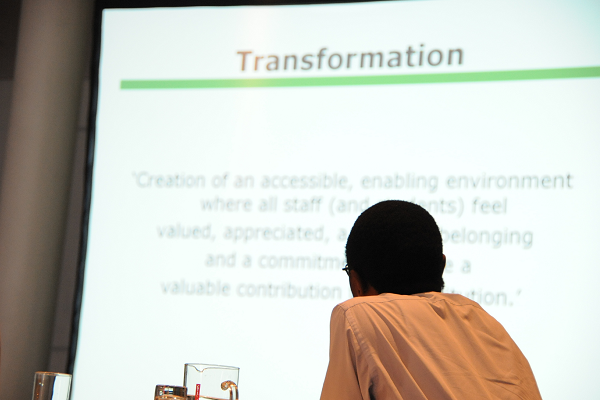

Enough room under the African sky
Professor Bongani Mayosi’s commitment to equality, transformation and an all-inclusive Africanness was profoundly influential and important to a wounded country and its institutions of higher learning.
Transformation
Bongani Mayosi actively advanced and supported the careers of students and colleagues, irrespective of ethnicity, race, religion or social class. He was a fierce advocate for the poor and marginalised. Throughout his career he took on national and global leadership roles, using his influence on policies and practice to prioritize neglected diseases of poverty and programmes to build research capacity.
He believed in exposing health science students to research early in order to “whet their appetite” and “get them hooked on science” before other competing interests took over. He pioneered the establishment of the intercalated BMedSci Hons/MBChB at UCT, which offers high-performing MBChB students a detour after the 3rd year of study to do a year of laboratory-based science honours, and then return to 4th year MBChB and graduate with two degrees – much as he did as a student at UKZN.
As the Dean of UCT’s Faculty of Health Sciences, he was committed to changing the demographics as well as the gender profile of the Faculty. He was deeply aware of the shortage of black professors, especially black women, and the need to radically transform a faculty with a predominantly white, aging and male teaching and research cohort. This transformation he had successfully initiated as Head in the Department of Medicine.
Professor Bongani Mawethu Mayosi’s extraordinary life and legacy remain an inspiration for future generations of students, researchers, scientists and citizens.